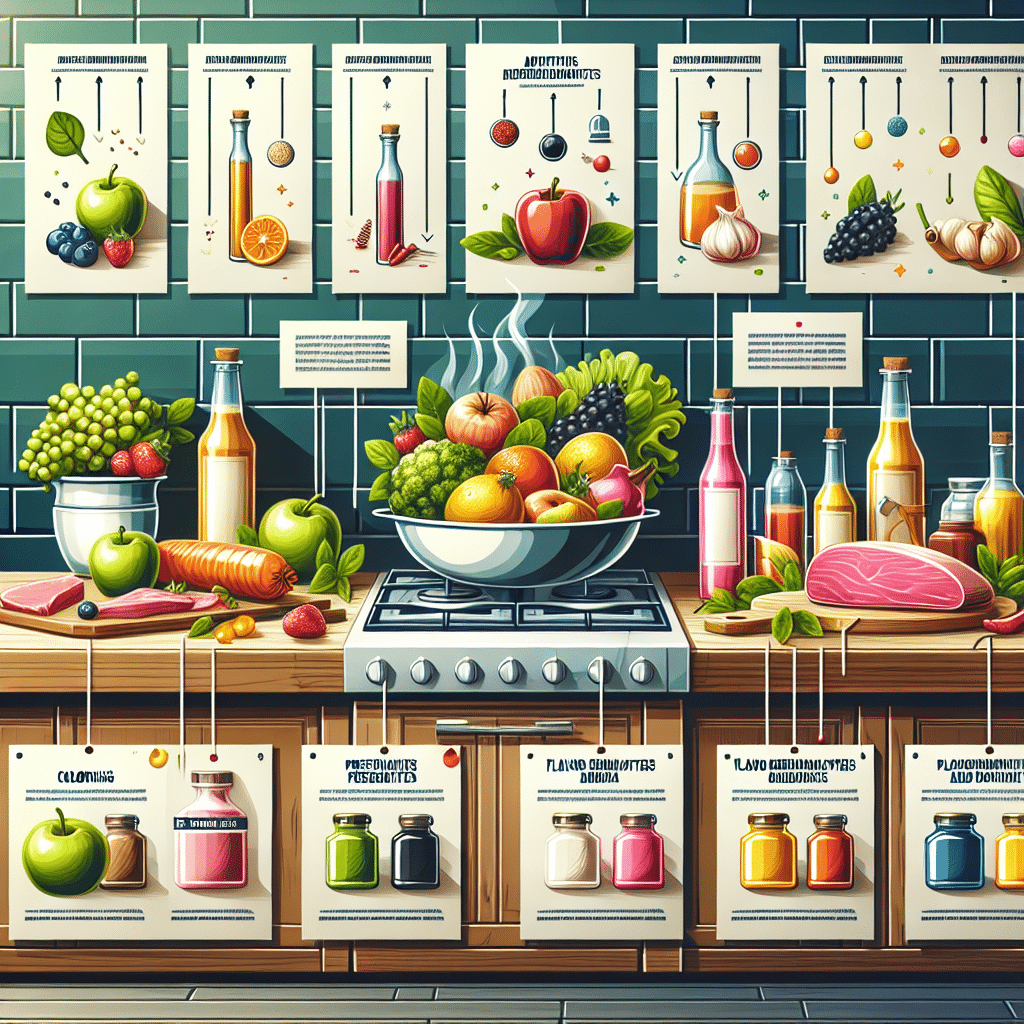The Role of Food Additives
-
Table of Contents
- Understanding the Crucial Role of Food Additives in Modern Diets
- What Are Food Additives?
- Types of Food Additives and Their Functions
- Benefits of Food Additives
- Regulatory Oversight and Safety
- Controversies and Consumer Concerns
- Case Studies and Statistics
- Conclusion: Balancing Benefits and Concerns
- Discover ETChem’s High-Quality Protein Products
Understanding the Crucial Role of Food Additives in Modern Diets

Food additives have become an integral part of the food industry, playing a variety of roles in the production, preservation, and enhancement of food products. From maintaining product consistency to improving taste and extending shelf life, these substances are essential in meeting the demands of today’s fast-paced world. This article delves into the multifaceted role of food additives, exploring their benefits, types, and the regulatory framework that governs their use.
What Are Food Additives?
Food additives are substances added to food to preserve flavor or enhance its taste, appearance, or other qualities. They can be derived from natural sources or synthesized in laboratories. The use of additives in food dates back to ancient times, with natural preservatives such as salt and vinegar being among the first to be utilized. Today, the range of food additives has expanded significantly, encompassing a wide array of chemicals and compounds.
Types of Food Additives and Their Functions
There are several categories of food additives, each serving specific functions within food products:
- Preservatives: These additives help prevent food spoilage by inhibiting the growth of bacteria, yeasts, or molds. Examples include sodium benzoate and potassium sorbate.
- Colorants: Colorants are used to add or restore color in foods. They can be natural, like beet juice, or artificial, like tartrazine.
- Flavorings: Natural and synthetic flavorings enhance or impart flavor to food. Monosodium glutamate (MSG) is a well-known flavor enhancer.
- Emulsifiers: These substances help to stabilize emulsions, preventing the separation of ingredients like oil and water. Lecithin is a common emulsifier.
- Stabilizers and Thickeners: These additives provide texture and consistency. Guar gum and xanthan gum are examples of thickeners used in various products.
- Antioxidants: Antioxidants prevent oxidation, which can cause rancidity and color changes. Ascorbic acid (vitamin C) is often used for this purpose.
- Sweeteners: Sweeteners, which can be nutritive (like sugar) or non-nutritive (like aspartame), are used to sweeten foods without adding the calories of sugar.
Benefits of Food Additives
Food additives offer several advantages that are essential in modern food production:
- Food Preservation: Additives extend the shelf life of foods, making it possible to enjoy our favorite products for longer and reducing food waste.
- Improved Taste and Appearance: Additives can enhance the flavor and color of food, making it more appealing to consumers.
- Consistency: They ensure a uniform texture and quality across batches of products.
- Convenience: Additives facilitate the production of a wide range of convenient foods, from ready meals to snack foods.
- Nutritional Enhancement: Some additives provide essential nutrients, such as vitamins and minerals, to foods that naturally lack them.
Regulatory Oversight and Safety
The safety of food additives is a top priority for regulatory agencies worldwide. In the United States, the Food and Drug Administration (FDA) is responsible for regulating and ensuring the safety of food additives. The European Food Safety Authority (EFSA) plays a similar role in the European Union. These agencies evaluate scientific evidence to determine the safety of food additives before they can be approved for use.
Regulatory bodies establish acceptable daily intake (ADI) levels for each additive, which represent the amount that can be consumed daily over a lifetime without posing health risks. The rigorous approval process and ongoing monitoring help ensure that food additives are safe for consumption.
Controversies and Consumer Concerns
Despite the regulatory measures in place, some food additives have been the subject of controversy. Concerns over potential health effects, such as allergies or hyperactivity in children, have led to increased scrutiny of certain additives. As a result, there is a growing demand for “clean label” products that are free from artificial additives.
Manufacturers are responding to this demand by reformulating products to reduce or eliminate the use of controversial additives, often replacing them with natural alternatives. However, it’s important to note that “natural” does not automatically mean safer or healthier, as natural substances can also cause adverse reactions in some individuals.
Case Studies and Statistics
Several case studies highlight the impact of food additives on the industry and consumer behavior. For instance, the removal of artificial dyes from a popular children’s snack led to an increase in sales and positive consumer feedback. Statistics show that the global food additives market is expected to grow, driven by the rising demand for processed foods and the need for longer shelf life.
Conclusion: Balancing Benefits and Concerns
The role of food additives in modern diets is complex. While they offer numerous benefits, including preservation, improved taste, and convenience, they also raise concerns among some consumers. It is crucial for manufacturers to balance these aspects by choosing safe additives and being transparent about their use. Regulatory agencies must continue to ensure the safety of these substances to protect public health.
Discover ETChem’s High-Quality Protein Products
If you’re looking for premium protein ingredients for your food products, ETChem’s protein offerings are worth considering. Their extensive range of collagens, including marine, fish, bovine, and chicken collagen, are perfect for various applications in the food and beverage industry. With a focus on quality and customer satisfaction, ETChem is your go-to source for protein additives that meet the highest standards.
About ETChem:
ETChem, a reputable Chinese Collagen factory manufacturer and supplier, is renowned for producing, stocking, exporting, and delivering the highest quality collagens. They include marine collagen, fish collagen, bovine collagen, chicken collagen, type I collagen, type II collagen and type III collagen etc. Their offerings, characterized by a neutral taste, instant solubility attributes, cater to a diverse range of industries. They serve nutraceutical, pharmaceutical, cosmeceutical, veterinary, as well as food and beverage finished product distributors, traders, and manufacturers across Europe, USA, Canada, Australia, Thailand, Japan, Korea, Brazil, and Chile, among others.
ETChem specialization includes exporting and delivering tailor-made collagen powder and finished collagen nutritional supplements. Their extensive product range covers sectors like Food and Beverage, Sports Nutrition, Weight Management, Dietary Supplements, Health and Wellness Products, ensuring comprehensive solutions to meet all your protein needs.
As a trusted company by leading global food and beverage brands and Fortune 500 companies, ETChem reinforces China’s reputation in the global arena. For more information or to sample their products, please contact them and email karen(at)et-chem.com today.




